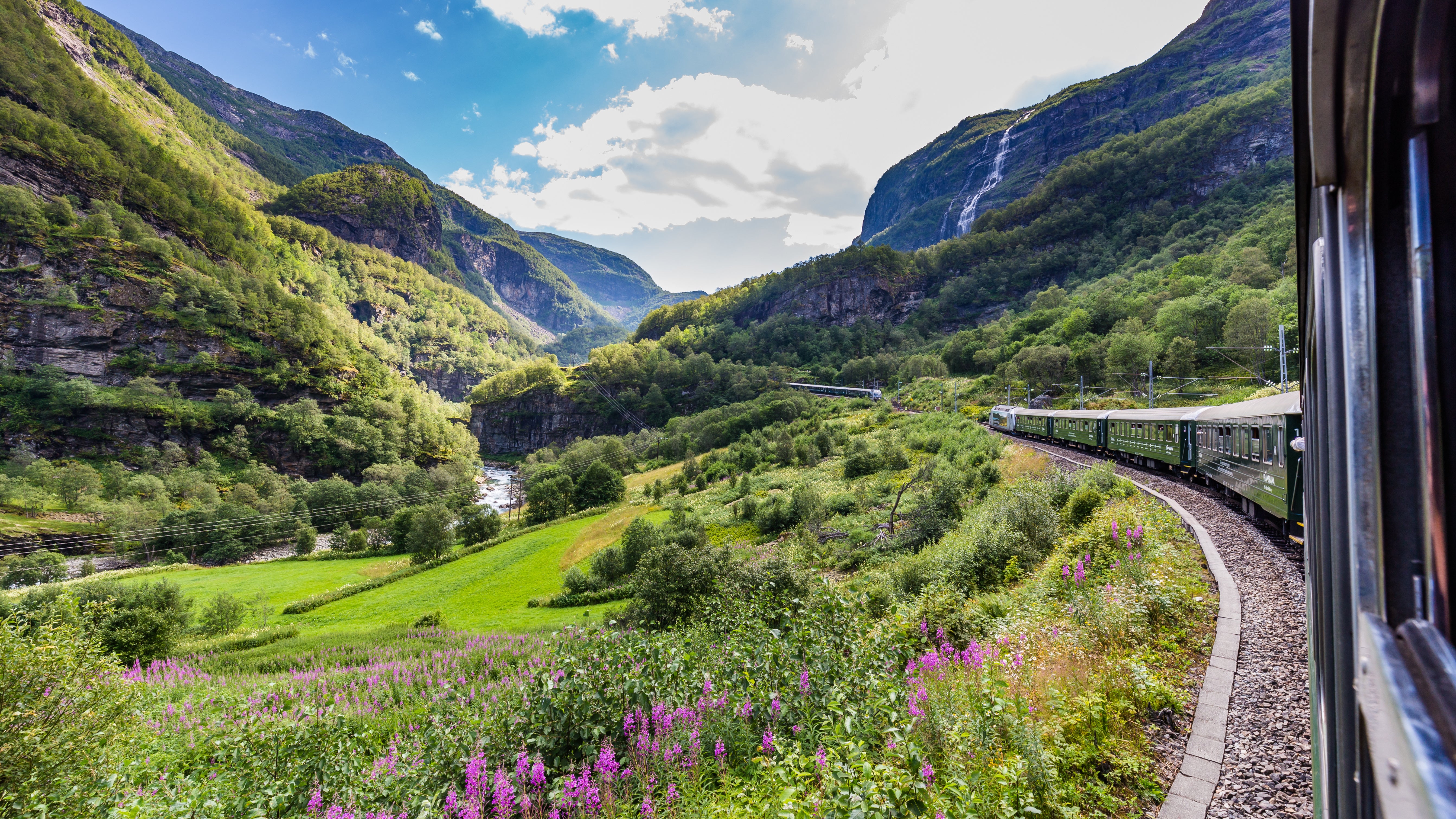Climate Perks: The new sustainability trend that encourages employees to embrace slow travel
The work perks scheme rewards staff who travel in a slower, greener way with more time off, writes Lucy Thackray


Flying often seems like the quickest and most logical way to travel – but what if we had more time?
That’s the question posed by British eco-charity Possible, whose Climate Perks initiative aims to get UK companies rewarding employees for greener behaviour – namely, ditching the flights and travelling in a slower, greener way. The scheme encourages businesses to offer their staff paid leave to cover the longer journeys that going flight-free can demand, incentivising people to travel instead by train, boat or coach.
Launched in January 2020, the campaign was quickly halted by the pandemic, when it emerged that very few people would be travelling anywhere, by plane or otherwise. Now, as travel is returning and companies are reviewing everything from office locations to remote-working policies, the trend is picking up pace.
Here’s how it works: businesses interested in reducing their staff’s carbon footprint sign up to the scheme for free, getting access to templates that help them create a “sustainable travel days” policy that suits their company. It’s then signed off by the charity and added to staff benefits and perks. Later, the business can update Possible on how many team members are using the extra days to travel more eco-consciously.
At the moment, going flight-free – or even reducing your flights by one or two a year – isn’t widely seen as the huge game-changer that it is
The perk has already been adopted by dozens of companies – not only innately green brands (Friends of the Earth, The Climate Coalition), but also City firms, marketing agencies, fashion brands and accounting companies. The minimum amount of sustainable travel days is two, but some companies have increased that to four or even six – with many reporting back that it has boosted staff engagement and satisfaction.
“We recently ran a staff survey about all the benefits we currently offer and Climate Perks got a unanimous seal of approval, being valued by our staff above all other benefits,” says David Drewery, executive director of Alliance Magazine.
The positives of swapping fast but high-impact flights for slower, less damaging modes of transport are increasingly clear.
Travelling by train or boat emits around 85 to 95 per cent less carbon than flying. A single return flight to Berlin clocks up the same amount of carbon as eight return trips by train, while a return to Barcelona emits as much CO2 as you’d save by recycling drinks cans for 5,000 years.

At the moment, going flight-free – or even reducing your flights by one or two a year – isn’t widely seen as the huge game-changer it is, says Climate Perks campaign manager Emma Kemp.
“The UK public flies more per person than any other nation – one in 12 international travellers is British,” she says. “We’re really the place where flying everywhere is most normalised, so we have some serious power in terms of switching that to a mode of transport with a much lower impact on the planet.”
The initiative is part of a wider trend for eco-conscious and philanthropic employee benefits.
Companies across the globe have been claiming to offset their staff’s carbon footprint for years, but simply buying offsets isn’t as effective as a large-scale switch to greener behaviour from employees at every level. Many huge corporations have been accused of doing little more than greenwashing.
The UK flies more per person than any other nation, so we have some serious power in terms of switching that to a lower-impact mode of transport
Kemp believes that initiatives like Climate Perks will help companies attract and retain a new generation of eco-conscious workers, many of whom are suffering from climate anxiety in the face of daily headlines about extreme weather, pollution, and damage to nature.
In a recent survey of 1,000 millennial and Generation Z workers, 86 per cent of respondents said they would stay longer at a company that was transparent about how it was easing its impact on the environment. The idea for the Climate Perks campaign came from research that found that, while 50 per cent of people say they want to reduce the amount they fly in response to the climate crisis, only 3 per cent are actually doing it.
Researchers identified the key barrier as time – people not wanting to cut into their holiday by taking a slower, low-impact journey to and from their destination.
Businesses shouldn’t see these optional extra days as added annual leave, says Kemp, but as a separate philanthropic benefit that will tempt in eco-conscious employees. “We encourage businesses to think of them less as holiday and more as optional volunteering days, which many companies already offer,” she explains.
Kemp herself recently travelled to Croatia by train and boat, stopping over in Italy, and points out that adding to your journey isn’t just better for the planet – it’s a chance to see more of the world.
“It’s more relaxed, more beautiful and more fun,” she says. “You see so much more of the places you visit by travelling through them rather than over them.”
Join our commenting forum
Join thought-provoking conversations, follow other Independent readers and see their replies
Comments


Bookmark popover
Removed from bookmarks